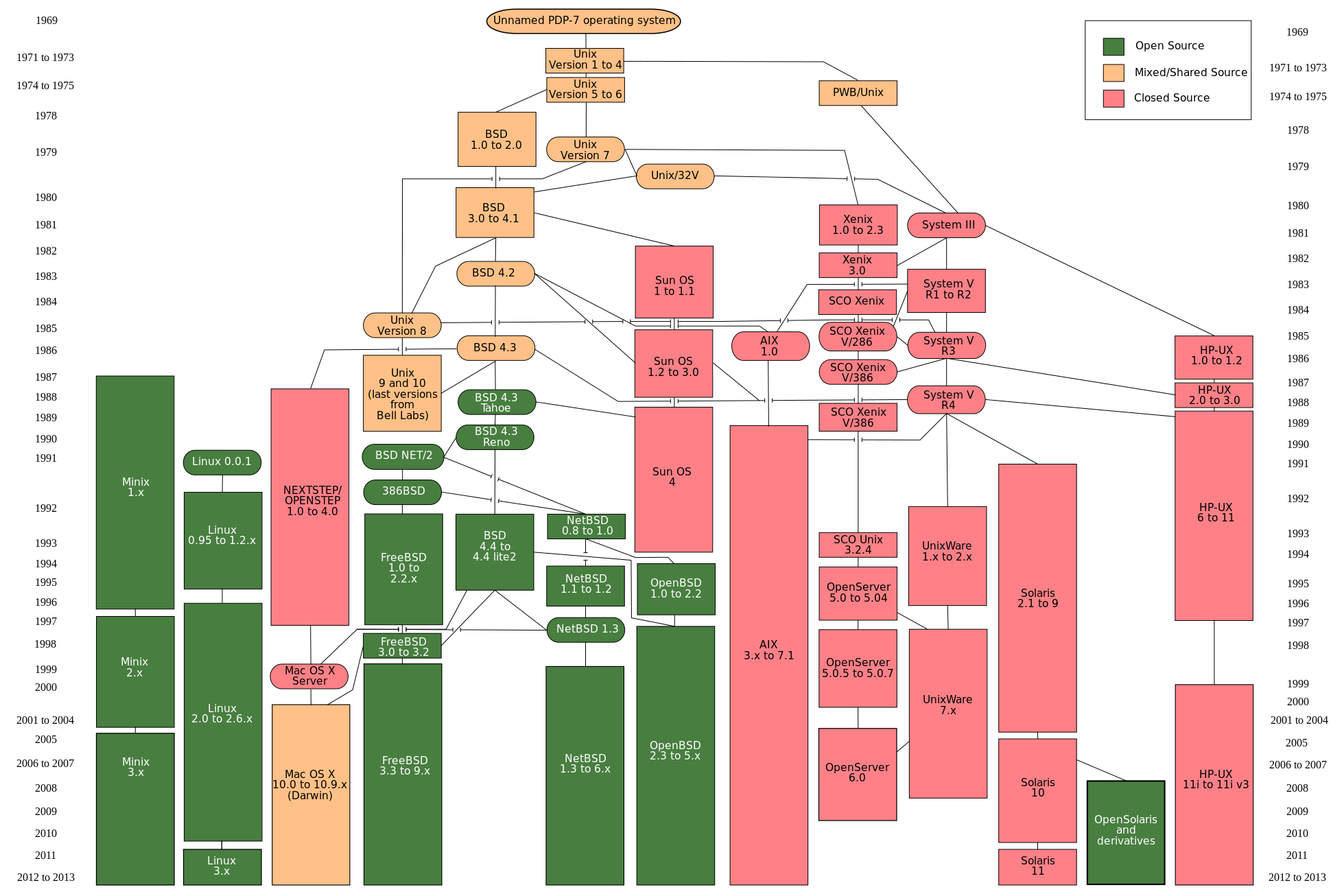B00nie
[H]F Junkie
- Joined
- Nov 1, 2012
- Messages
- 9,327
Everyone is complaining how gaming on linux sucks but at the same time the origins of linux (unix) actually started from rewriting code in order to make a space game run better:
Follow along with the video below to see how to install our site as a web app on your home screen.
Note: This feature may not be available in some browsers.
As well as app support and general usability. Both are true.Everyone is complaining how gaming on linux sucks
As well as app support and general usability. Both are true.
Well that's where you're wrong. Linux is considered to be in the 'unix family'. If you would have watched Brian Lundukes presentation you'd not make that argument. Unics was created in order to run a game better and all these OSes were either reverse engineered or directly ascended from that work.Ugh... Linux is not Unix. It's not some sort of evolution of Unix. It's not a derivative of Unix.
What it has is a lot of the feel of Unix. And most would now agree that Linux is better than Unix in many ways. What created Linux was the fact that Unix wasn't really accessible at the time (even BSD if you know the history).

Without Unics, linux would not exist. So I disagree.Actually, according to that diagram, I'm right (just saying).
Can that be deduced? Possibly. Maybe in the way that Lamborghini wouldn't have made cars if Ferrari didn't first. They're both car manufacturers. They are similar to us in ways that both are sports cars and are operated similarly. But, they are completely different on the inside. Lamborghini cars are not a branch of Ferrari cars in much the same way that Linux is not a branch of Unix. Influenced? Yes. Branch? No.Without Unics, linux would not exist. So I disagree.
Without Unics, linux would not exist. So I disagree.
The existence of Adam and Eve is highly debatable so I disagree. However Unics is well documented and a historical fact.Is this Brian? Anyway, without Adam and Eve, "Unics" wouldn't exist. So, I guess we're all in agreement then?
You are both kinda wrong, and also kinda right. Yes, you could easily make the argument that Linux wouldn't exist, at least as it does today, without the inspiration of design from Unix. The argument could also be made that if Unix hadn't existed, Linux could still exist but as something else entirely. This whole idea that Y wouldn't exist if X hadn't happened is a fallacy. That doesn't mean Y didn't get inspiration from X, but just because this is how things played out doesn't mean it's the only way they could have. If Edison and his team hadn't invented the light bulb, I bet someone else would've eventually. However, your supposition that Linux was a desire to create a free and open Unix alternative is not correct. If you listen to any number of interviews with Linus, he states that he created Linux mainly as an alternative to Minix, and it initially wasn't free and open. That decision was made, albeit early on in development, but only after members of the community convinced Linus to do so.Can that be deduced? Possibly. Maybe in the way that Lamborghini wouldn't have made cars if Ferrari didn't first. They're both car manufacturers. They are similar to us in ways that both are sports cars and are operated similarly. But, they are completely different on the inside. Lamborghini cars are not a branch of Ferrari cars in much the same way that Linux is not a branch of Unix. Influenced? Yes. Branch? No.
Also, thank you for your post and the video. Always cool to learn and enjoy more about the history and future of technology. Man love their games!
Maybe you quoted the wrong person? I never said linux wouldn't have existed without Unix. And, I also never said anything about linux being a desire to create a free and open Unix alternative...You are both kinda wrong, and also kinda right. Yes, you could easily make the argument that Linux wouldn't exist, at least as it does today, without the inspiration of design from Unix. The argument could also be made that if Unix hadn't existed, Linux could still exist but as something else entirely. This whole idea that Y wouldn't exist if X hadn't happened is a fallacy. That doesn't mean Y didn't get inspiration from X, but just because this is how things played out doesn't mean it's the only way they could have. If Edison and his team hadn't invented the light bulb, I bet someone else would've eventually. However, your supposition that Linux was a desire to create a free and open Unix alternative is not correct. If you listen to any number of interviews with Linus, he states that he created Linux mainly as an alternative to Minix, and it initially wasn't free and open. That decision was made, albeit early on in development, but only after members of the community convinced Linus to do so.
Yup, You're absolutely right. Meant to quote Boonie one post up. SorryMaybe you quoted the wrong person? I never said linux wouldn't have existed without Unix. And, I also never said anything about linux being a desire to create a free and open Unix alternative...
The first part of what you said is essentially the statement that I already summarized in the post you quoted...
All goodYup, You're absolutely right. Meant to quote Boonie one post up. Sorry